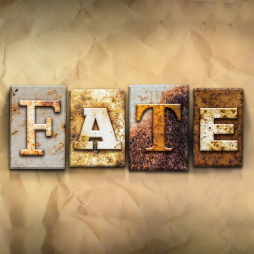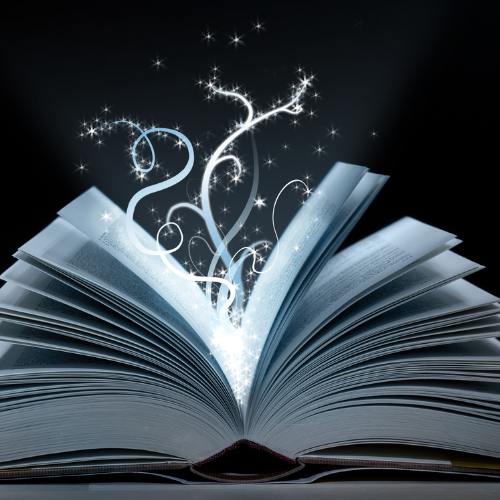Writing is complex all by itself. Forget about magic systems.
As anyone who has ever written well… anything will tell you, there’s nothing more daunting than looking at a blank page and needing to fill it up with words. Even I stared at *this* page for at least 20 minutes before I started writing anything and *I* already had an outline.

Adding magic to a world inevitably increases the complexity of any world you’re writing. If you want to inhabit a particular world and its magic system, you must understand everything from the smallest spell to the largest global effect. Your readers may encounter none of these details, but *you* need to have planned them, or your internal consistency will suffer.
Layers and Layers and Layers
So, why is writing a Magic System in particular challenging? Well, think of it as a system of layers, each more complex than the last. Though our own world is incredibly sophisticated, a written world is thin and insubstantial until you have fleshed it out. Here’s a quick practical example.
It was a new world, one fresh with possibility and energy. Rivers of lava still flowed across the surface, and the land seemed to shift uneasily with every earthquake. It was a world that had never known life and would not for billions of years.
~ Robert Burne
There’s nothing to that world. It’s new and has nothing going for it. It’d barely be a blip on your horizon if you were a seasoned world hopper.
Magic Systems Layer 1: The Physical World
The first layer, the simplest, is the physical world. This means everything you can see, touch, smell, hear, and even taste (if you really want to – lava is hot). By itself, this layer needs to have consistency. If we add an observer, we need to lay out what they see and know what they expect.
The single butterfly floated above the chaotic landscape, trying in vain to find a place to land safely. It dodged as a huge blob of lava crackled through the air, plunging down into the hissing sea below. Already, the butterfly could see hard crusts forming where before, there had been none.
~ Robert Burne
When things go up, they should come down. When lava cools, it should harden. Our example world is simple, but it has very definite laws.
Magic Systems Layer 2: The Emotional/Intellectual World
Zane reached out a hand, allowing the butterfly to rest at last. He wondered at the strange feeling. Something living was walking on his flesh. It clung to his finger, lazily flapping its wings in the rapidly cooling air. It twitched, once, as Zane’s hand closed, crushing it.
~ Robert Burne
Oof. The second layer is tricky. It’s complicated and wildly inconsistent, but you’ll spend at least 50% of your writing time figuring out how to hammer some logic into whatever strange, squishy creatures you’ve made to inhabit your world. Why does someone feel a certain way? How do people become friends? Why do people do bad things?
Magic Systems Layer 3: The Magical World
Zane’s eyes widened as a tingling feeling spread through the tips of his fingers. His fist began to glow and he could feel an immense pressure building, slowly forcing his fingers apart.
~ Robert Burne
The magical layer is (surprise) the most interesting. It’s the most complex to write, but it’s also easily the most fun. While it has to have rules, it has the unique ability to warp and change the other two layers.
When a person squishes a butterfly, you expect it to be squished.
Any time something else happens, that’s Layer 3 at play, whether it’s explicit (as in our example) or implicit. Bram Stoker’s *Dracula* does this really well – it’s never adequately explained how the Count does what he does, but you certainly wouldn’t suggest that it’s at all normal.
OK, So Why is Writing Magic Systems Challenging?
Magic systems are hard to write because of their functions. You could wave a hand and resurrect a butterfly, or destroy the Bad Guy™ with a single word. But that would be boring.
Function 1: Twisting of Fate
What is the fate of a butterfly that lands on the hand of a Bad Guy™? Well, it’s one of two things, isn’t it? Either it gets a reprieve in a heartwarming show of emotion, or it gets crushed.
In the narrative world of the first two layers, only two possibilities could exist. When you add in the third layer, you can subvert what *should* happen and explore how twisting fate can shift things around.
Maybe you save the butterfly. Maybe the butterfly turns out to be an eldritch horror. Who knows?

The heat was unbearable now. Zane felt his knees hit the ground and felt rather than saw the immense creature unfolding its wings, beating the air in a horrible cacophony.
~ Robert Burne
Function 2: Twisting of Worlds
A Magic System both works with and against the world in which it exists.
That’s just the way it is.
You cannot have magic as a completely separate entity in a world that relies on it. It’s easier to think of magic as something that is an integral part of everything in your world. It both forms and twists the fabric of reality.
In our world, matter tells space-time how to curve. In the written world, Magic tells Narrative how to bend.
Fortunately, Magic isn’t all layers and functions—It is also an interesting way to explore the role of things*.
Unveiling the Enchantment: Crafting Intricate Magic Systems for Unbounded Worlds
Writing a magic system is a complex task that requires a deep understanding of the different layers that make up a world. The physical world, the emotional/intellectual world, and the magical world all interact with each other in a way that can be difficult to balance.
In addition, magic systems need to have clear rules and functions in order to be believable. However, writing a magic system can also be an extremely rewarding experience because it allows the writer to explore the role of things in the world and to twist fate in ways that would not be possible in the real world.



